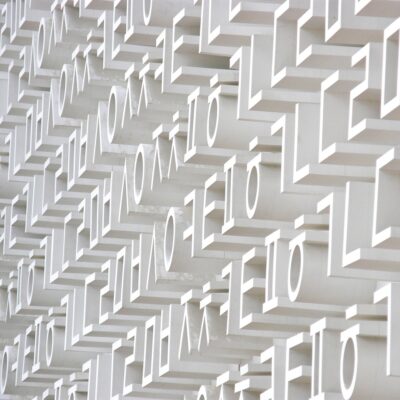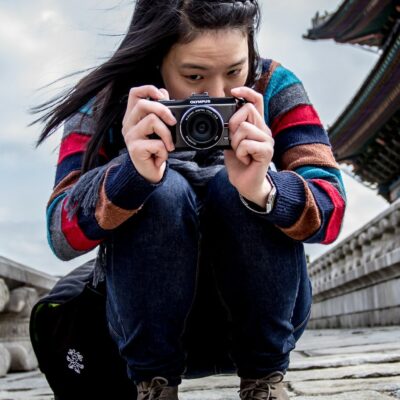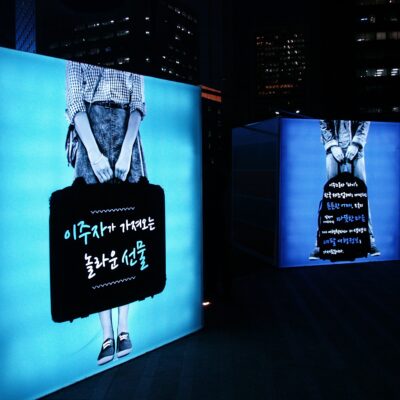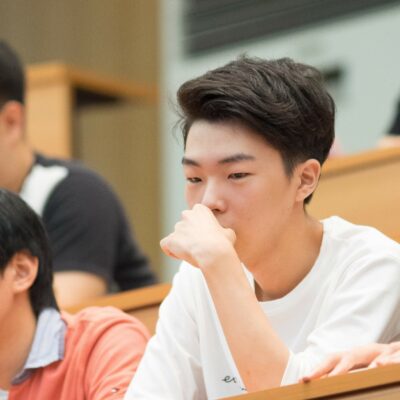It is the opening ceremony of the Paris Olympics 2024. As the South Korean national team makes its way past cameras and onto the screens of millions of people worldwide, the narrator confidently announces in French: “Democratic People’s Republic of Korea”. Soon after, South Korean authorities, headed by the Vice-Minister for Sports and Culture, made a formal complaint to the International Olympic Committee (IOC) and Paris 2024 organisers, outraged at how their athletes, representing the Republic of Korea, could be mistaken for their estranged neighbours to the North. What was described as innocent ‘human error’ was taken quite seriously in South Korea, with initial explanatory apologies from the IOC met with further complaints and, only then, a more formal apology issued to the President of the Republic of Korea, Yoon Suk Yeol.
So, what is there to a name? After all, aren’t both the same people and the same ‘Korea’? There is more to it than that, even on the level of nomenclature, with the individuals perhaps most exposed to the issue of ‘naming Korea’, North Korean ‘defectors’ living in South Korea. The terms used to refer to those originating from North Korea are, in themselves, controversial, with nomenclature ranging from ‘defectors’ to ‘escapees’ and even ‘migrants’.
Escapees from North Korea face numerous challenges upon arriving in South Korea, with cultural and language barriers being one of the most significant. As of 2023, approximately 34,000 North Korean defectors reside in South Korea, contributing to the complex social fabric of the nation. The recent appointment of Thae Yong-ho, a former senior North Korean diplomat, to a vice-ministerial position in the South Korean government, symbolises the growing political and social integration of defectors. However, despite such seemingly positive advancements, the societal stigmas faced by North Korean defectors remain significant.
Although the Korean language contains examples of ethnocentric nation-building and unification in the form of terms such as Ournation (urinara) and Ourlanguage (urimal), it is arguable as to whether these envelop the whole of the Korean diaspora or, indeed, in a more tribalistic sense, simply those born and raised in South Korea. The discrepancy may be seen in the rhetoric of the South Korean public, with expressions such as ‘North Korean vocabulary lookup in Ourlanguage’ visible in the titles of certain publications. Such usage may be seen as rather ironic (and arguably reflective of actual, contemporary South Korean identity as opposed to that prescribed by institutions such as the National Institute of the Korean Language), as the official definition of Ourlanguage (urimal) is “the language of the people of Ournation (urinara)”.
In this article, I focus on the complexity of the naming ‘Korea’, with some examples of the national and linguistic identities of North Korean escapees living in South Korea from interviews conducted in 2019. I focus on the ideological discrepancies in the naming of ‘Korea’ and everything that is ‘Korean’—something that is often overlooked in English translations of both South and North Korean written matter and, as a result, often leads to ‘mix ups’ not unlike that witnessed during the recent opening ceremony of the Olympic games in Paris. Although the arguably ‘subtle’ differences in the naming of a country (i.e., North vs South Korea) may seem trivial for audiences from some linguistic backgrounds (particularly those who are speakers of languages where the difference is not as marked as it is in Korean and languages that have a Sinoxenic component), it may have repercussions for individuals and their identities.
‘Han’ and ‘Joseon’: Two Koreas
Although the Korean language is fundamentally the same in both North and South Korea, it has diverged significantly due to the 70-year separation and differing sociopolitical conditions. Korean in South Korea has been heavily influenced by foreign languages, especially English, due to globalisation, while North Korea has taken a purist approach with some Soviet Russian influence.
Korea was unified under the Joseon Dynasty for over 500 years until the Korean Empire was established in 1897. Following Japanese colonisation (1910–1945), the Korean Peninsula was divided after World War II, with the Soviet-backed North becoming the Democratic People’s Republic of Korea (DPRK) and the US-supported South forming the Republic of Korea (ROK). The division also created differences in how each side refers to ‘Korea’. North Korea uses ‘Joseon’ (from the Joseon Dynasty), while South Korea uses ‘Daehan’ (from the imperial period). This distinction is not mirrored in English, where both are often referred to as ‘Korea’.
In everyday language, North Koreans refer to their country as ‘Joseon’ and South Koreans as ‘Hanguk,’ extending the terms to other national symbols such as the Korean alphabet, which is called ‘Hangeul’ in the South and ‘Joseon-geul’ in the North. The Korean Peninsula is similarly referred to as ‘Han bando’ (bando meaning peninsula) in the South and ‘Joseon bando’ in the North. These distinctions indicate political or ideological alignment, especially when terms like ‘Joseon Peninsula’ are used in the South or ‘Hangeul’ in the North, raising eyebrows due to their symbolic significance. In languages other than Korean, the situation is even more complicated. For example, in Japanese, South Korea is called ‘Kankoku’ (Hanguk) while North Korea is ‘Kita Chōsen’ (Buk Joseon), therefore somewhat reflecting the use in the respective countries.
In North Korea, using ‘Han’ for Korea has been illegal and highly policed. For instance, during a visit by South Korean President Kim Dae-jung in 2000, North Korean media reported he arrived on ‘H Air’ instead of ‘Daehan Hanggong’ (Korean Air). More recently North Korean officials have referred to South Korea as ‘Daehan Minguk’ (the official term used in South Korea), to reflect a view of the South as a separate nation and enemy.
In South Korea, while there are no bans on the usage of ‘Joseon’ (in fact, one of South Korea’s major newspapers, the Chosun Daily, is literally the Joseon Daily), there is some stigma in relation to the term Joseon being used in reference to the Korean people, as it is associated with North Korea and the Japanese colonial period and sometimes used as a racial slur in Japan towards South Koreans. According to some historical sources, patrons of the American backed interim government in the South held a vote in 1948 to decide on the naming of the new government, with 17 votes going towards Republic of Korea (Daehan), seven towards Republic of Koryo (Koryo originating from the ancient Koryo Kingdom), and two towards the Republic of Joseon (the same term for Korea now used in the North, the only difference being the omission of ‘people’s democratic’). Koryo is used sporadically in both the North and South as well as in reference to the Korean diaspora in Central Asia (known as ‘Koryo saram’). The term ‘Koryo’ also made a brief comeback in 1980, when Kim Il-Sung, the founding leader of the Democratic People’s Republic of Korea, proposed a ‘Democratic Confederal Republic of Koryo’. Historical sources note that proponents of Daehan (the term used now in the South) such as politician and Korean independence activist Jo So-ang argued that the Japanese colonisers tried to eradicate the term in favour of ‘Joseon’, which is “symbolic of sadaeju’ui”, a largely pejorative term often used in reference to historical Korean reliance on China (within a Sinocentristic world order), particularly during the Joseon Dynasty. It is, therefore, the combination of such narratives and historical flows (including naming decisions made by a select few on both sides) that have resulted in a relatively complex socio-political situation, often overlooked by languages outside of Asia. And yet, the name that we, as individuals, go by, or choose as self-reference, has been a historically hot issue, the anglophone world no exception.
‘Korea’ and North Korean defectors
The importance of naming in the context of identity has been discussed in relation to, for example, Canada, with nationalist movements playing a key role in defining collective identities and making naming choices (in representing groups and individuals). Jane Jenson, professor of Political Science at the University of Montreal, argues that naming encompasses four key elements: it generates strategic resources, establishes the significance of certain claims over others, positions communities in relation to allies and opponents, and affects how claims navigate state institutions. So, what of the 34,000 North Korean defectors living in South Korea and their reference to ‘Korea’? In Interviews with North Korean Defectors: from Kim Shin-jo to Thae Yong-Ho, the fruits of a student translation project I facilitated and oversaw at the end of 2020, there are 34 instances of ‘South Joseon’, largely in reference to South Korea from the perspective of the North, or as something that was said in the past (prior to defection) in North Korea about the South.
As an example of the latter (flashback to the past/perspective prior to coming to the South), in his interview, Park Seong-jin, a university student turned sohaegeum player (a North Korean stringed instrument), says of his motivation to escape North Korea: ‘As soon as I graduated from Jan Cheol-gu Pyongyang University of Commerce in 2004, my father said to me ‘Son! It’s absolutely too difficult for your talent to bloom in this society. Although it may be tough, let’s go to South Joseon!’’. This phrasing, where what would normally be referred to as ‘Hanguk’ is referred to as ‘South Joseon’, is not unusual and would not necessarily stand out for South Korea readers, as it is written from the perspective of Park’s life while still in North Korea.
Perhaps more interesting are the examples where the interviewees are speaking in reference to South Korea in a temporarily complex manner that would indicate that ‘Korea’ in fact exists for them under two names (in other words, that there is a conflict of identity, or a plural identity); both ‘South Joseon’ when thinking of their self while in North Korea, and ‘Hanguk’ (the term used in South Korea), post-defection. Park Seong-jin, again, speaking about the strict North Korean ban on South Korean cultural products, stated:
‘One day, I received a special invitation to an acquaintance’s wedding where I sang the South Joseon song ‘Chilgap Mountain’. This was considered a crime and I was subjected to a 40-day investigation by the SSA (State Security Agency)’.
This usage is interesting and may stand out for many South Korean readers, as it is not a phrase that was said in the past (while in South Korea), but in reference to a South Korean cultural product (a South Korean song) in the present moment. In other words, while the point in time when the incident happened was prior to coming to South Korea, the item that is referred to, would be modified by most South Korean speakers in the present moment (and those more assimilated to South Korea, or perhaps more sensitive to nomenclature/stigma associated with certain naming conventions), as ‘Hanguk song’.
Park later demonstrates similar usage in reference to the popularity of the Korean Wave (South Korean popular culture) in North Korea, stating:
‘From the late 1990s onwards, university students who didn’t know the names of one or two South Joseon films were treated as ‘fringers’ (outcasts) in Pyongyang’s university towns’.
Again, although Park is reminiscing about bygone days from his time in North Korea, the term used to modify ‘films’ in the present moment (as someone in South Korea) would normally be ‘hanguk’ and not ‘South Joseon’.
Similarly, Jang Se-yul, a former North Korean university teacher turned president of Gyeore’eol Unification Solidarity (a defector not-for-profit organisation), speaking of his motivations to defect from the North, stated in his interview:
‘During the time when I was teaching at university, I was exposed for having accidentally watched South Joseon television. As a result, I was made to do intense labour for three years as punishment’.
Both the repeated word choice of the interviewees and that of the interviewer who later edited the Korean language publication (Lim Il), indicate that the relationship between North Korean defectors and reference to ‘Korea’ is deeply ingrained on a subconscious level, something that may not be immediately appreciated by native South Korean speakers who generally have limited exposure to such usage and tend to display sensitivity to any mention of ‘Joseon’ in relation to South Korea or the Korean Peninsula.
Such may be said not only of South Korean perceptions of North Korean styles of speech displayed by escapees and some ethnic Koreans from China and Japan, but also sensitivity to diplomatic word choices such as official Chinese, Japanese, and Vietnamese reference to the Korean Peninsula as the ‘Joseon Peninsula’ in their languages, based on historical usage (where the peninsula was referred to as the ‘Joseon Peninsula’ prior to division).
Conclusion
The heightened sensitivity of South and North Koreans to misnomer may be seen as linked to the very plurality of ‘Korea’ in the Korean language, and ideologies imparted through decades of education. This can sometimes lead to misunderstandings and lack of objectivity, such as when interacting with states such as Japan, China, and Vietnam, who choose a more diplomatic approach to nomenclature.
Regardless, considering the importance of naming in ascertaining collective identity and positionality, all nations should have the right to be referred to using their own naming convention of choice (within contextual reason), and so what was witnessed during and soon after the Paris Olympics 2024 opening ceremony was bad form on part of the organisers and should serve as a lesson for all to show more cultural sensitivity when dealing with politically tense parts of the world.
What we can see from examples of North Korean defector references to ‘Korea’, is that linguistic and self-identity is not as simple as ‘crossing the border’. Lim Il, the interviewer (and final interviewee in the English edition), noted that remarks made by defectors during their interviews with him (a fellow North Korean defector) could differ from what they would normally say to, for example, South Korean audiences. In that sense, Interviews with North Korean Defectors offers unique insights into the linguistic subconscious and complex identity of North Korean defectors and is a good example of the complexities surrounding the naming of ‘Korea’.
Image: A view of North Korea from Dora Observatory. Credit: JoshBerglund19/Flickr.




